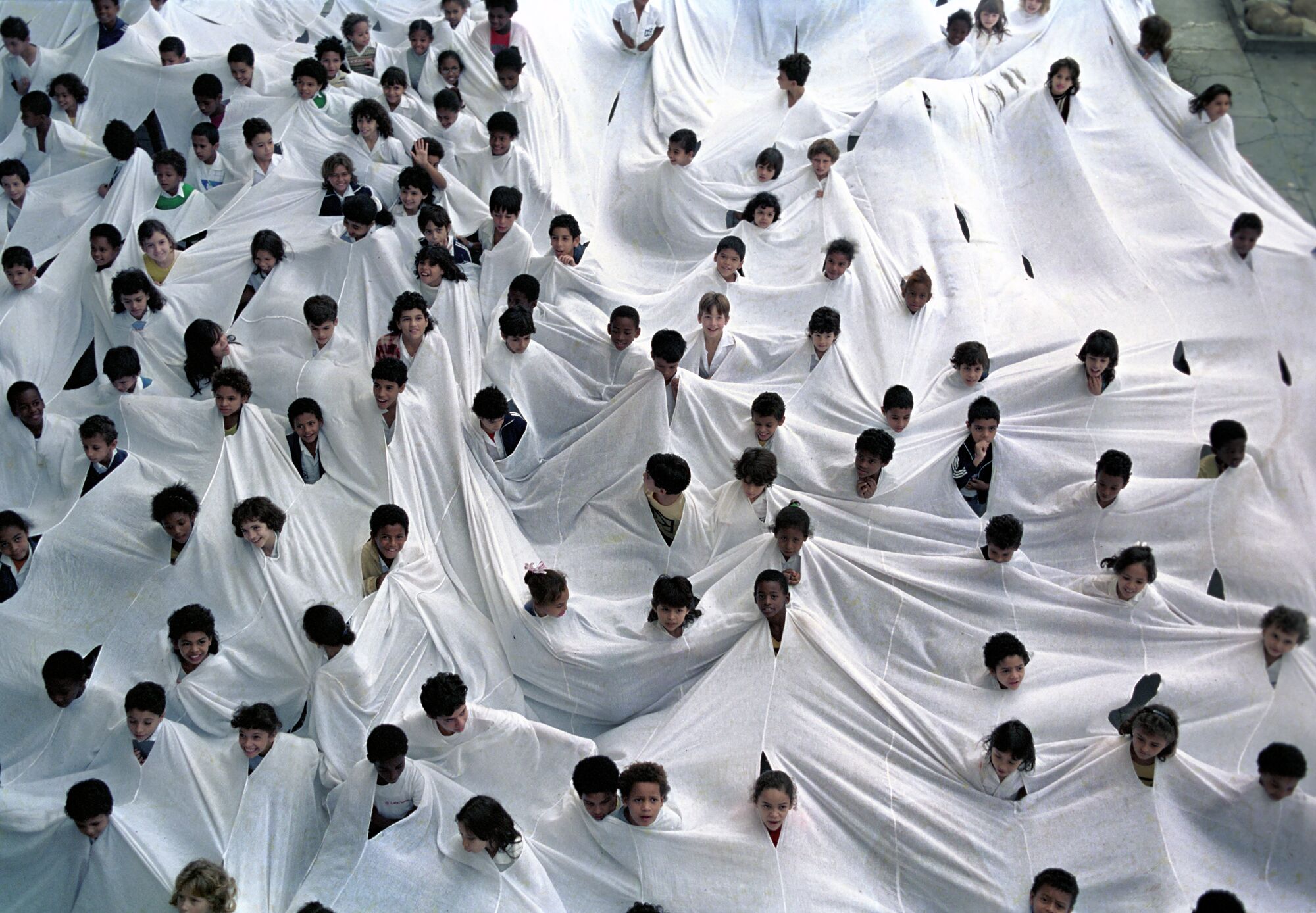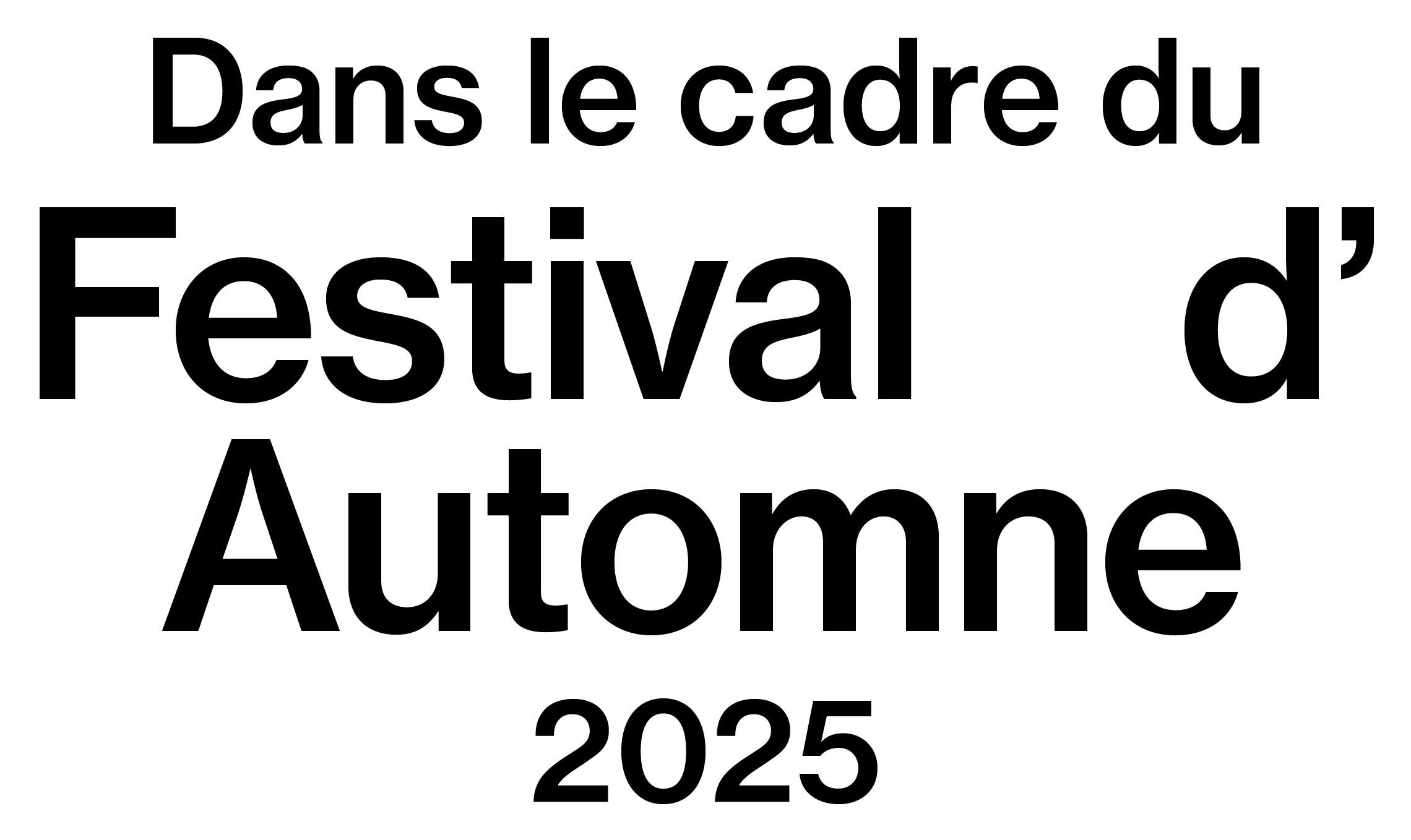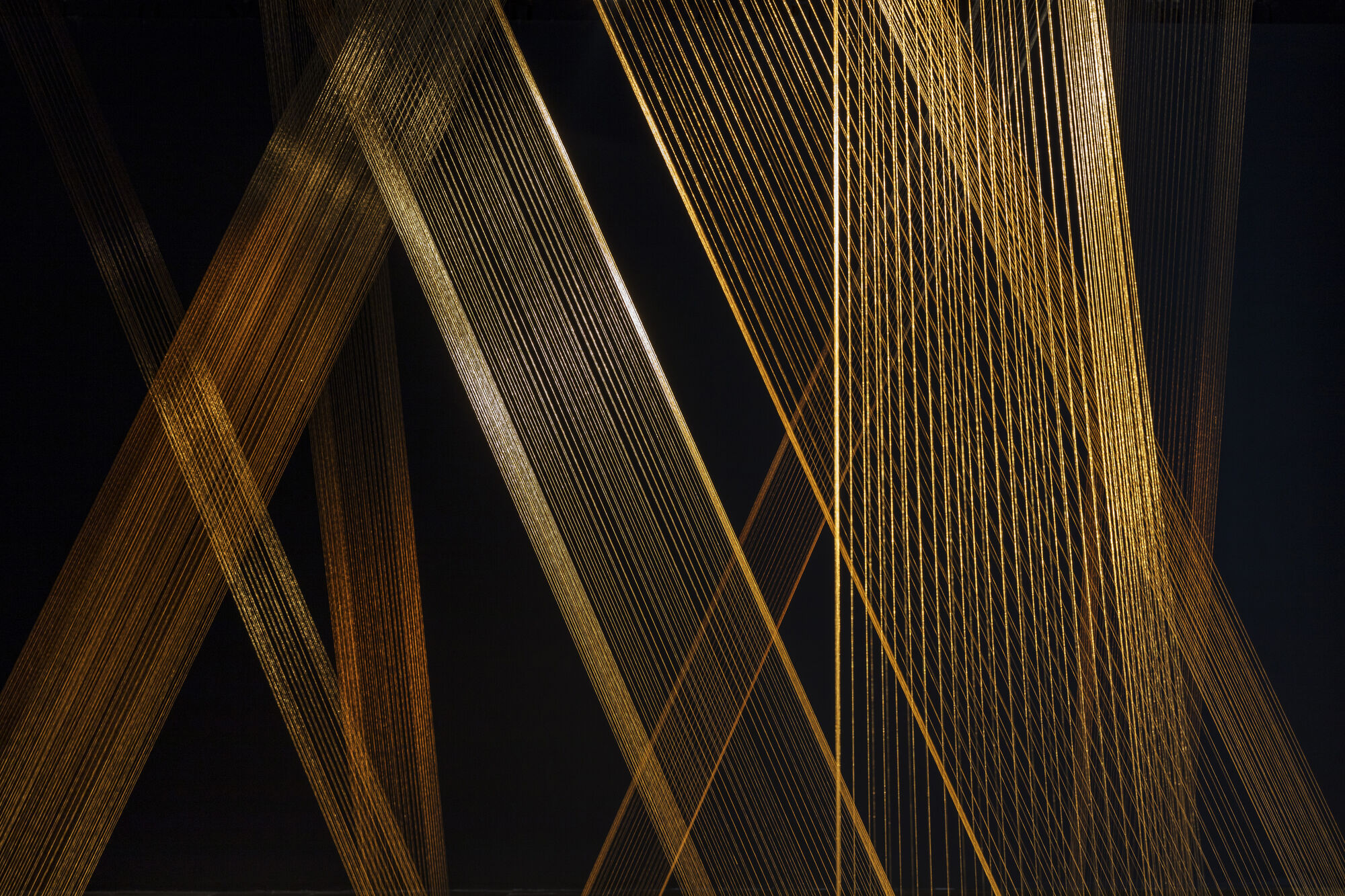
Lygia Pape, « Divisor »
ARCHIVE
Free Access.
Participants are free to join and leave the performance whenever they wish.
Spontaneous participation by passers-by is encouraged.
As part of the opening of the Festival d’Automne, the Bourse de Commerce is presenting Divisor (1968), a performance by Brazilian artist Lygia Pape, in Les Halles district.
An emblematic figure of the Brazilian avant-garde, Lygia Pape (1927–2004) is the subject of the first solo exhibition in France presented by the Pinault Collection. She left a lasting impact on the history of art with a body of work which, firmly rooted in social realities, combines performance, participation and sensory exploration.
In 1968, Lygia Pape brought together around a hundred people from different neighbourhoods of Rio de Janeiro, ranging from children from the favelas to the middle classes, and gathered them under a huge twenty-by-twenty meters white sheet, pierced with holes through which only their heads emerged. This crowd of human beings, their heads separated from the rest of their bodies, was united by the same "garment", thereby doing away with all social hierarchy and class distinction. Conceived as a joyful, participatory work, which could be reproduced even in the absence of the artist, Divisor brings us a metaphor for the "social fabric" that is both lyrical and political. Devised in the context of a Brazil muzzled by the military dictatorship, this unclassifiable piece turns into a free-flowing procession. Bringing it back to life on the streets of Paris resonates with the Lygia Pape. Weaving space exhibition, presented at the Bourse de Commerce – Pinault Collection.
Event organized as part of the Brazil-France Season 2025.


Born in Nova Friburgo, Lygia Pape (1927–2004) was one of the most important figures of the Brazilian artistic avant-garde of the second half of the twentieth century, alongside Lygia Clark and Hélio Oiticica. These artists understood artworks not as finished objects, but as sensory presences that interact with the senses and consciousness of visitors. After studying philosophy and aesthetics, Lygia Pape chose the visual language to express her humanist vision of the world. In 1954, she met Hélio Oiticica and took part in the creation of the Frente group, founded by the critic Ferreira Gullar and her former teacher Ivan Serpa (1923–1973), a pioneer of Brazilian constructivism.